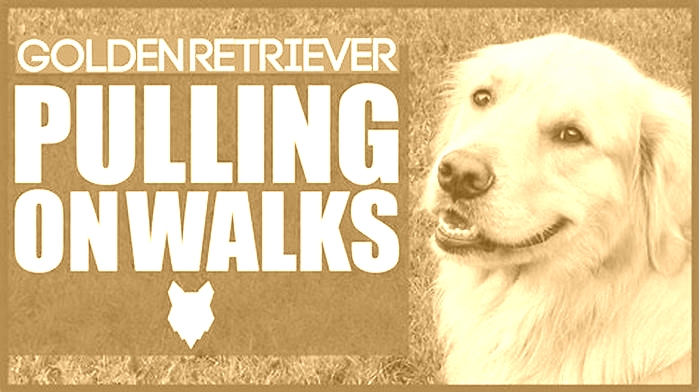How many kg should a Golden Retriever weigh
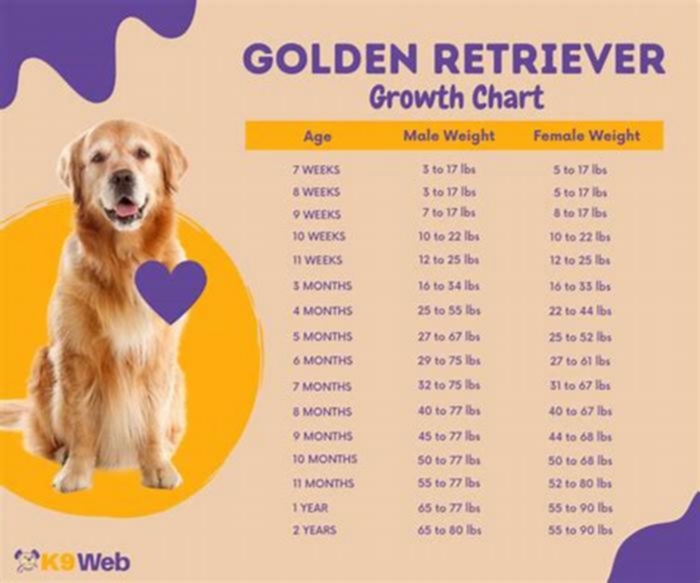
Golden Retriever Growth & Weight Chart: Everything You Need To Know
Here's everything you need to know about Golden Retriever growth:
Golden Retriever Dog Breed
Golden Retrievers are medium- to large-sized dogs with sturdy, athletic bodies and strong gaits. Please remember that the following growth and weight numbers are estimates and should only be used to gather a general idea of what your Golden Retriever puppy may weigh at different ages.
If your Golden Retriever pup is significantly ahead or behind the following numbers, contact your veterinarian to check that your puppy is growing appropriately. However, dont fret if your dog is a little ahead or behind the growth numbers, as every puppy grows at their own rate!
Pro Tip: Want to be reimbursed for up to 90% of your dogs veterinary bills whenever they are sick or injured? Compare Golden Retriever health insurance options today.
Male Golden Retriever Growth and Weight Chart
| Age | Weight |
|---|---|
| 1 mo. | 3-5 lb. |
| 2 mo. | 10-15 lb. |
| 3 mo. | 20-25 lb. |
| 4 mo. | 25-30 lb. |
| 5 mo. | 35-40 lb. |
| 6 mo. | 35-45 lb. |
| 7 mo. | 40-50 lb. |
| 8 mo. | 45-55 lb. |
| 9 mo. | 50-60 lb. |
| 10 mo. | 55-65 lb. |
| 11 mo. | 60-70 lb. |
| 12 mo. | 60-70 lb. |
| 2 yr. | 65-75 lb. |
Female Golden Retriever Growth and Weight Chart
| Age | Weight |
|---|---|
| 1 mo. | 2-5 lb. |
| 2 mo. | 5-10 lb. |
| 3 mo. | 15-20 lb. |
| 4 mo. | 20-25 lb. |
| 5 mo. | 25-30 lb. |
| 6 mo. | 30-35 lb. |
| 7 mo. | 30-40 lb. |
| 8 mo. | 35-45 lb. |
| 9 mo. | 40-50 lb. |
| 10 mo. | 45-55 lb. |
| 11 mo. | 50-55 lb. |
| 12 mo. | 50-60 lb. |
| 2 yr. | 55-65 lb. |
At what age is a Golden Retriever fully grown?
As larger dogs, Golden Retrievers can take up to two years to reach their full weight. Most Golden Retrievers will be close to their adult height and weight around a year of age but may need one more year to fill out their chest fully.
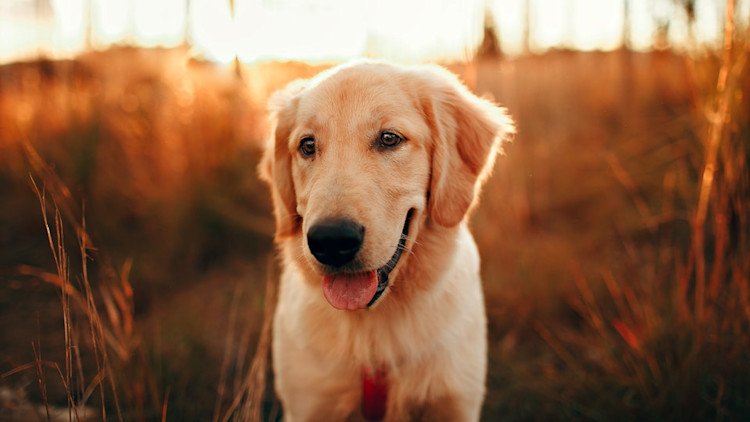
(Image Source: Pexels)
How big should a 6-month-old Golden Retriever be?
A six-month-old male Golden Retriever will weigh between 35 to 45 pounds, while their female counterpart will weigh around 30 to 35 pounds at the same age.
As for their height, most Golden Retrievers will still need another three to six months to reach their adult height. At this age, they will likely be a few inches away from their adult height, which ranges from 21.5 to 24 inches tall, with male Goldies being on the taller end of the range.
Pro Tip: Check out this ultimate pet parent guide with 39 dog care tips on bonding with your pet, puppy-proofing your home, training, microchips, and more!
How much bigger will my Golden Retriever get?
There are a few ways you can estimate how much bigger your Golden Retriever will get.
First, start with your Golden Retriever puppys age. If they are less than a year old, they still need more time to reach their full adult size. Many Golden Retrievers can take up to two years to completely fill out, though their weight at one year old is usually close to their full adult weight.
Next, reach out to your Golden Retriever puppys breeder if applicable. Their breeder should be able to provide you with a precise estimate of your puppys adult size based on their parents and previous litters their parents had. A puppy is rarely larger than their bigger parent, so this will also give you a general idea of their maximum weight.
Lastly, take a look at your puppys paws. If their paws still look large or oversized next to their body and legs, they are probably still filling out and have some growing left to do, as this is a classic sign of adolescence in canines.
What is the size of a full-grown Golden Retriever?
Per the American Kennel Club Official Golden Retriever Breed Standards, a male Golden Retriever should weigh between 65 to 75 pounds, and a female Golden Retriever should weigh between 55 to 65 pounds.
Male Golden Retrievers will stand at 23 to 24 inches, while female Goldies are slightly shorter at 21.5 to 22.5 inches tall. As adults, Golden Retrievers will appear overall symmetrical and have a powerful body hidden beneath beautiful, golden fur.
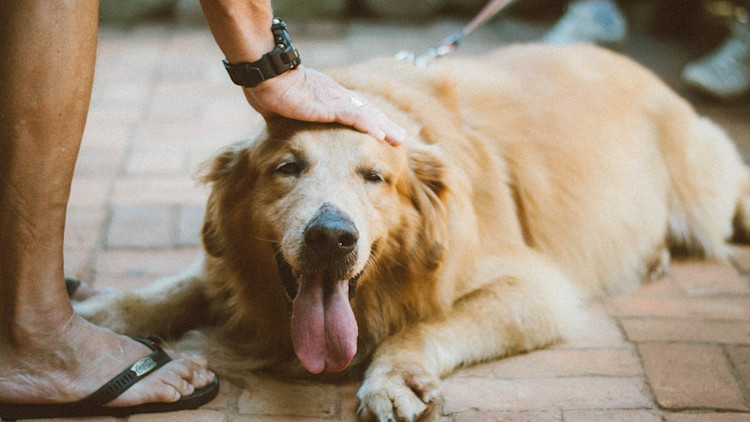
(Image Source: Pexels)
How do I make sure my Golden Retriever is healthy?
Golden Retrievers are stunning, sunny dogs that easily steal our hearts. Unfortunately, as a purebred dog breed, they are more susceptible to genetic diseases, which can compromise their lifespan and quality of life. However, many genetic disorders can be treated or prevented with regular veterinary care. Remember that prevention is almost always easier and less expensive than treatment. So regular veterinary care, along with a healthy lifestyle, can provide your Goldie with the best foundation for a happy, healthy life.
Healthy lifestyle choices such as an appropriate diet and exercise routine are crucial in your pups everyday happiness and long-term health. Your veterinarian may recommend a large-breed growth food to your Golden Retriever puppy to support their growth rate which can help prevent or decrease the severity of hip dysplasia in adulthood.
According to the Veterinary Centers of America, Golden Retrievers are also more prone to gaining excess weight. They should be carefully monitored to see if theyve gained weight, as their long coats can easily disguise weight gain. This can be done easily by being mindful of your pups body size and shape when you're petting them, as well as routine observation by a veterinarian as part of your Goldens annual physical exam.
Golden Retrievers are also susceptible to various genetic health disorders, such as oral tumors and aortic stenosis. Aortic stenosis is most commonly found in large, purebred dogs, including Golden Retrievers, and occurs when the aortic valves to the heart narrow. Aortic stenosis causes the body to struggle to pump blood through the valve, creating additional stress on the body.
If untreated, aortic stenosis can lead to muscle failure and even fatality. However, veterinarians can treat many genetic diseases like aortic stenosis and oral tumors through surgery and medication. Your veterinarian can also screen your Golden Retriever for hereditary diseases during their regular exams to keep an eye on your puppys health and to treat any illnesses as soon as possible.
Even with proper prevention and wellness care, necessary veterinary visits can be expensive, with many treatments costing thousands of dollars. Out of over 20,000 pet parents surveyed, only 19.8% said they would be able to pay a $5,000 veterinary expense out-of-pocket. The last thing you should be focused on when the worst happens is how to finance a needed surgery or treatment for your beloved pet. This is where pet insurance comes in.
Pet insurance acts as a safety net by reimbursing you for up to 90% of out-of-pocket veterinary costs for accidents and illnesses. Youll feel at peace knowing that your Golden Retriever will receive top-notch veterinary care should the worst happen, and you can focus on whats really important, being there for your pup while theyre being treated.
Just like people, dogs are living longer lives and will need additional veterinary care to maintain a happy quality of life. Let pet insurance help you with these costs should the worst happen to your dog. Wellness plans are also available as an add-on to help with the ongoing costs of regular veterinary care, like x-rays and exams.
Final Considerations
Dont wait for the worst to happen. Act now and give yourself peace of mind knowing that your Golden Retriever is covered should anything happen. Compare top Golden Retriever pet insurance plans side-by-side with Pawlicy Advisor today!
Pawlicy Advisors personalized recommendations can help you save up to 83% on insurance costs over your dogs lifespan.
Golden Retriever Growth and Weight Chart (Ultimate Growth Guide)
Golden retrievers are popular and cherished pets all around the world. The breed originates from Scotland and, despite the name, comes in a variety of colors including, red and cream. Golden retrievers are a large breed of dog that can continue to grow for nearly two years.
Male and female golden retrievers grow at different rates and to different sizes. Female Golden Retrievers reach an adult weight of about 60 lbs (27.21 kg). Male golden retrievers grow to a weight of around 70 lbs (31.75 kg). Golden Retrievers reach a height of roughly 2 (0.60 m).
Keep reading this article for a growth and size chart guide for your golden retriever, as well as an explanation of what to expect during different stages of your golden retrievers development and how to ensure your golden puppy thrives. I will also examine some tricks to help your golden retriever remain a healthy weight.

(This article may contain affiliate links and loyalgoldens may earn a commission if a purchase is made.)
Unlock your goldens natural intelligence and see just how quickly problem behaviors disappear.This is the best at home dog training I've ever used!
Growth and Weight Chart for Male and Female Golden Retrievers
Golden retrievers can vary in weight depending on their health, sex, and how much they eat. The following chart breaks down the expected weight of your golden receiver for both male and female puppies.
The scale gives you an average weight month by month until one year, then adult weight at two years.
| Age of Golden Retriever | Male Weight | Female Weight |
| 1 month | 3-5 lbs (1.36-2.26 kg) | 2-5 lbs (0.90-2.26 kg) |
| 2 months | 10-15 lbs (4.53-6.80 kg) | 5-10 lbs (2.26-4.53 kg) |
| 3 months | 20-25 lbs (9.07-11.33 kg) | 15-20 lbs (6.80-9.07 kg) |
| 4 months | 25-30 lbs (11.33-13.60 kg) | 20-25 lbs (9.07-11.33 kg) |
| 5 months | 35-40 lbs (15.87-18.14 kg) | 25-30 lbs (11.33-13.60 kg) |
| 6 months | 35-45 lbs (15.87-20.41 kg) | 30-35 lbs (13.60-15.87 kg) |
| 7 months | 40-50 lbs (18.14-22.67 kg) | 30-40 lbs (13.60-18.14 kg) |
| 8 months | 45-55 lbs (20.41-24.94 kg) | 35-45 lbs (15.87-20.41 kg) |
| 9 months | 50-60 lbs (22.67-27.21 kg) | 40-50 lbs (18.14-22.67 kg) |
| 10 months | 55-65 lbs (24.94-29.48 kg) | 45-55 lbs (20.41-24.94 kg) |
| 11 months | 60-70 lbs (27.21-31.75 kg) | 50-55 lbs (22.67-24.94 kg) |
| 1 year | 60-70 lbs (27.21-31.75 kg) | 50-60 lbs (22.67-27.21 kg) |
| 2 years | 65-75 lbs (29.48-34.01 kg) | 55-65 lbs (24.94-29.48 kg) |
As you can see from this chart, golden retriever puppy growth takes place over its first 2 years.
Golden retriever puppies should stay with their mother until they are at least eight weeks old. Therefore when you first get a new puppy, it will likely be two to three months old. A golden retriever can weigh anywhere from 5 lbs to 25 lbs (2.26 to 11.33 kg) during this period.
This shows that puppies, in particular, can vary significantly in weight for the first few months of their life.
If your golden retrievers weight is significantly over or under the above figures, this may indicate an issue, mainly if the dog is older than a couple of months.
Golden Retriever Growth (Life Stages)
Golden retrievers have five main stages of their development. You can expect different behaviors, needs, and wants from your golden retriever puppy as it grows to reach these milestones. Here are the five main stages of your golden retrievers journey from newborn to adult.
- Neonatal
- Socialization
- Juvenile
- Sexual Maturity
- Adult
Neonatal
The neonatal stage of a golden retrievers life is from birth until three weeks old. During this stage of its life, the puppy will be incredibly vulnerable and dependent on its mother.
The puppy is born blind, so it will have to learn how to open its eyes during this stage. The golden retriever will also learn how to walk and will receive their first teeth during this period. Therefore the neonatal is a time full of significant developments for puppies.
Socialization
The next stage in a golden retrievers life is the socialization stage, which begins at three weeks and continues to twelve weeks. This period will be the first opportunity for people to socialize and interact with the puppy.
Some breeders view this period as an important time for developing the dogs social skills.
The socialization period is when your golden retriever will become more inquisitive and explore much more frequently. This is also the best age to introduce solid foods and begin potty training the golden retriever.
Therefore this period is critical developmentally.
Juvenile
Once your golden retriever reaches three months, it reaches the juvenile stage. They will remain a juvenile until they are close to six months old. Your golden retrievers growth rate will reduce during this period.
The juvenile age will indicate that your puppy is starting to learn more about the world around them, and is a suitable time to begin further training your puppy. The juvenile stage is also the best time to establish rules and boundaries that they need to follow.
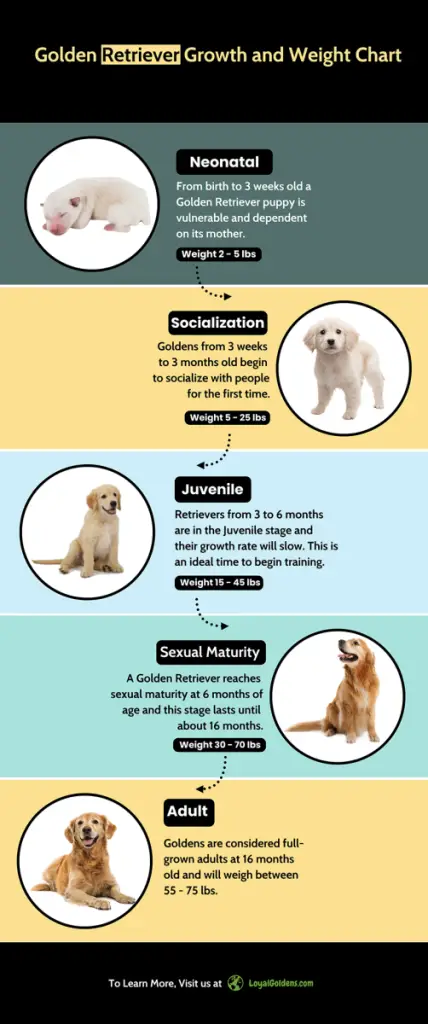
Discover how to train your Golden Retriever by playing games: 21 games to play with your Golden that will make them smarter and better behaved!
Sexual Maturity
Your golden retriever reaches sexual maturity at six months. This stage lasts up until adulthood or until your golden retriever is about 16 months old. If your puppy has not been spayed at this age, it will begin mating behaviors, which can lead to some dogs becoming aggressive and territorial as well as disobedient.
During this period, your golden retriever will grow considerably in their ears, nose, and legs.
By the end of this period, your golden retriever will be close to full size. As your retriever takes its last major growth spurt, it may become clumsy, and its bones can be fragile. This means that there is an increased risk of injury.
Thats why you should avoid any exertive exercise during this period to prevent any unfortunate accidents.
Related: Find out the best age to spay or neuter your golden retriever
Adult
Golden retrievers are considered adults at 16 months old. However, larger dogs often continue to grow until two years. So dont be worried if your puppy has not reached their full size by this age.
While some dogs may still grow up until two, they have usually reached their max height by 16 months, which means that you will have a clear indication of just how big your retriever will be. Your dogs personality will also become more pronounced as they enter adulthood.
You will also have established a lifelong bond with your four-legged companions by this stage.
Full Grown Size and Weight of a Golden Retriever
Each golden retriever will grow to be slightly different in size and weight. However, the best way to estimate the size of an adult dog is by examining the average weight and height of the dog breed.
On average, an adult male golden retriever stands between 21 and 24 (53.32 and 60.9 cm) and weighs 60 to 75 lbs (27.21 to 34.01 kg). However, larger dogs can reach 90 lbs (40.82 kg). Female golden retrievers are about the same height as males but weigh about 55 to 65 lbs (24.94 to 29.48 kg) on average.
If your golden retriever is fully grown and does not weigh within the normal range, it could indicate a behavioral or health issue. This situation should be monitored, and if it worsens, an expert should be consulted.
Whats a Healthy Weight for a Golden Retriever?
A healthy weight for a Golden Retriever is around 75 lbs (34.01 kg). Every dog is unique, and two dogs can come from the same parents and eat the same food but be of different sizes. Therefore when assessing if your dog is a healthy weight, you should consult a vet for accurate results.
There are some things you can do to figure out if your golden retriever is overweight. If you can feel and see an indentation at your dogs waist, its unlikely that the dog is overweight. You should also be able to feel the dogs ribs if you apply gentle pressure.
If you cant feel some ribs, your dog is likely overweight.
A dog is obese if it is 20% over average weight for the breed. So if the average weight for a golden retriever is 75 lbs (34.01 kg), above 90 lbs (40.82 kg) would be considered obese for the breed.
However, some larger dogs may be healthy at a higher weight, but this will not be the case in most scenarios.
What It Might Mean If Your Golden Retriever Is Overweight
Golden retrievers are prone to obesity, especially as they get older. Therefore you should pay extra attention to your dogs weight.
Obesity is a common problem for all dogs, and it comes with severe consequences.
A Golden retrievers lifespan is greatly affected by obesity, as it can shorten the breeds longevity by years. Golden retrievers are also at high risk of numerous severe health conditions when they are overweight, such as:
- Diabetes
- Cancer
- Kidney and liver failure
- Heart issues
- Joint and bones issues
- High blood pressure
- Arthritis
Any of these conditions will not only shorten your golden retrievers life, but they will also significantly hurt their quality of life. This can lead to depression, among other problems for your dog.
Therefore you must keep track of your golden retriever to prevent them from growing obese. Effectively monitoring their weight will ensure that your golden retriever can live a long and happy life.
On top of this, veterinary treatment for serious health issues is costly without insurance.
You can pay tens of thousands of dollars on vet bills if your dog becomes seriously ill. Ailments such as diabetes can be particularly expensive as the dog will require regular medication that comes at a high price.
How Can You Help Your Golden Retriever To Lose Weight?
If you believe that your golden retriever is overweight, there are a few things that you can do. Youll want to bring your dog to the vet for a health check. While you are there, ask the vet about dietary needs and how much exercise your golden retriever needs to get and stay healthy.
One of the quickest ways for dogs to gain weight is by eating treats.
Treats are like junk food for canines, so overindulging them can result in dog weight gain. This can be particularly difficult with a golden retriever as the breed is intelligent and will happily beg for treats.
Overeating is another common cause of golden retriever weight gain.
Often dog food producers will overestimate how much food your dog needs in a day. If you are following the guidelines on the bag and your dog has gained weight, slightly reduce how much food you give them each meal.
Related: Find out how much to feed your golden retriever at every stage of life
The last way to help your golden retriever lose weight is to exercise. Golden retrievers are active dogs that require regular exercise every day. You should exercise your golden retriever for 30-60 minutes every day.
Exercising your dog can consist of a brisk walk, a run, or a swim. You might want to play active games such as fetch to keep your dog enthusiastic about exercising.
Weight loss is a slow process for golden retrievers. It can take weeks or even months before you see progress. However, if you are not overfeeding the dog and providing it with regular exercise, its weight should decrease.
What It Might Mean If Your Golden Retriever Is Underweight
Golden retrievers are prone to being overweight rather than underweight.
Therefore a thin golden retriever may be showing signs of problems. If your golden retriever has rapidly lost weight, you should bring them to a vet as soon as possible, as rapid weight loss is an indicator of a medical issue.
Weight loss can be caused by minor issues like a toothache or a severe problem like cancer. Therefore any quick weight loss should be treated as serious until you have been told otherwise by an expert.
If your golden retriever has not lost weight quickly but is just skinny, it may not be eating enough food. To prevent this, ensure that you provide the dog with enough food every day to make sure the dog eats the food.
Some dogs are picky eaters, so you may need to mix up the food they are given or add water if you are feeding your dog dry food. You can also add small amounts of human food mixed with their dog food. This can entice your dog to eat more.
What To Do if Your Golden Retriever Puppy Is the Wrong Weight
Golden retrievers grow quickly as puppies, going from 5 lbs (2.26 kg) to nearly 50 lbs (22.67 kg) in just six months. You shouldnt panic if your golden retriever pup is not of average weight for its age and breed. Many dogs are perfectly healthy at above or below the average weight for their breed.
However, a puppy growing too quickly or slowly can be exposed to various serious health problems as they get older.
Puppies that become heavy at an early age can suffer from physical deformation and development issues with their hips and elbows. If they remain overweight, they will also become at risk of numerous severe health conditions like diabetes or cancer.
If your young golden retriever could lose some weight, the best way to do this is by reducing how much you are feeding them. As a general rule, a golden retriever should get 1 cup of food for every 30 lbs (13.60 kg).
However, more miniature puppies may require more food to help them grow.
If you are feeding your golden retriever multiple times per day, you can reduce it to one meal in the morning or evening, which reduces the total amount of food that your puppy is getting per day. If your puppy is severely overweight, you should consult a vet about a weight loss program.
Severe weight gain can also indicate diabetes as the dogs body is not effectively breaking down sugars.
When a golden retriever puppy is underweight, it can indicate various severe and mild health issues. Your puppy may have a stomach bug, or it could be serious. If your puppy has not eaten for more than 24hours, then you should seek assistance.
Usually, when a sizable hungry breed like a golden retriever is not eating, there is a reason. Your pup may stop eating if they have an issue with their digestive system. A loss of appetite and weight can also be an indication of a virus or infection.
If this is the case, your puppy will require immediate medical care.
An underweight golden retriever puppy can also be showing signs of malnutrition. Puppies can become malnourished if they eat the wrong food or if they lack nutrients in their diet.
Malnutrition can result in severe health and developmental problems for your dog as they grow up. If your puppy is significantly below the average weight for their age, they may be lacking nutrition in their diet. As a result, they will require veterinary treatment.
However, if your puppys growth is just a few pounds underweight, this is not a significant concern. You should monitor the situation and try to feed the dog more, but as mentioned earlier, young golden retrievers vary significantly in weight and can gain weight very quickly.
Golden Retriever Growth and Weight Chart Final Thoughts
Golden retrievers are lovable, caring, kind, and the perfect companion for anyone.
However, golden retrievers are large dogs that grow quickly. They start out in the neonatal stage at less than 5 lbs (2.26 kg) and can grow up to 70 lbs (31.75 kg) in just over one year.
Golden retrievers are prone to obesity, so you must keep track of their weight.
To ensure that your dog remains happy and healthy, feed it appropriate amounts of food and provide regular exercise. Playing active games with your golden retriever is also a fantastic way to keep them healthy!
Reference
- https://www.akc.org/dog-breeds/golden-retriever/
- https://en.wikipedia.org/wiki/Golden_Retriever









